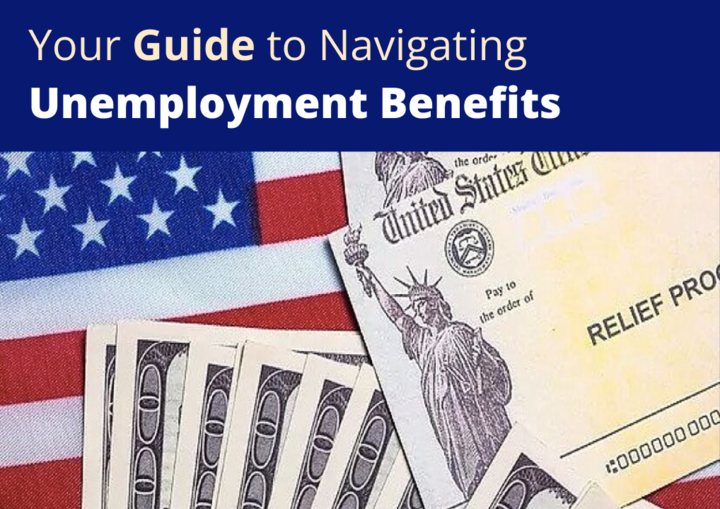Financial freedom is often regarded as the ultimate goal for many individuals, representing a state where one has sufficient personal wealth to live without the need to actively work for basic necessities. This concept transcends mere wealth accumulation; it embodies the ability to make choices that align with one’s values and desires without the constraints imposed by financial obligations. Achieving financial freedom typically involves a combination of strategic saving, investing, and prudent spending.
Individuals who attain this status often find themselves liberated from the daily grind of a 9-to-5 job, allowing them to pursue their interests and passions more freely. The journey toward financial freedom can be multifaceted, involving various strategies such as budgeting, debt reduction, and investment in assets that generate passive income. For instance, real estate investments can provide a steady stream of rental income, while stock market investments can yield dividends and capital gains.
Moreover, financial literacy plays a crucial role in this journey; understanding how to manage money effectively can empower individuals to make informed decisions that enhance their financial well-being. As people gain control over their finances, they often experience a profound sense of empowerment and security, which can lead to improved mental health and overall life satisfaction.
Key Takeaways
- Financial freedom allows for more flexibility and security in life
- Having more time for hobbies and passions can lead to a more fulfilling and balanced lifestyle
- Travel opportunities can provide new experiences and perspectives
- Health benefits include reduced stress and improved overall well-being
- Social and emotional adjustments may be necessary when transitioning into retirement
More Time for Hobbies and Passions
One of the most significant advantages of achieving financial freedom is the increased availability of time to engage in hobbies and passions. When individuals are no longer tethered to a traditional work schedule, they can dedicate their time to activities that bring them joy and fulfillment. Whether it’s painting, gardening, writing, or playing a musical instrument, having the freedom to explore these interests can lead to a more enriched life.
This newfound time allows for deeper engagement in these activities, fostering creativity and personal growth. Moreover, pursuing hobbies can have therapeutic benefits. Engaging in activities that one loves can reduce stress levels and promote mental well-being.
For example, studies have shown that creative pursuits like painting or crafting can serve as effective outlets for emotional expression, helping individuals process their feelings and experiences. Additionally, hobbies often provide opportunities for social interaction, whether through classes, clubs, or online communities. This social aspect can further enhance the enjoyment derived from these activities, creating a sense of belonging and connection with others who share similar interests.
Travel Opportunities
Financial freedom opens up a world of travel opportunities that may have previously seemed unattainable. With the ability to allocate resources toward exploration rather than being confined by work schedules or financial constraints, individuals can embark on adventures that broaden their horizons and enrich their lives. Traveling allows for immersion in different cultures, cuisines, and landscapes, fostering a deeper understanding of the world and its diversity.
Whether it’s a spontaneous weekend getaway or an extended journey across continents, the possibilities are virtually limitless. Traveling also has the potential to enhance personal growth and development. Experiencing new environments challenges individuals to step outside their comfort zones, fostering adaptability and resilience.
For instance, navigating unfamiliar cities or engaging with locals can cultivate problem-solving skills and boost confidence. Furthermore, travel often leads to unforgettable memories and stories that shape one’s identity. The connections made with people from different backgrounds can lead to lasting friendships and a broader perspective on life, ultimately contributing to a more fulfilling existence.
Health Benefits
The pursuit of financial freedom can have profound implications for one’s health and well-being. When individuals are no longer burdened by the stress of financial instability or the demands of a traditional job, they often experience significant improvements in both physical and mental health. Reduced stress levels can lead to lower blood pressure, improved sleep quality, and a decreased risk of chronic illnesses such as heart disease and diabetes.
The ability to prioritize self-care becomes more attainable when financial pressures are alleviated. Moreover, financial freedom allows individuals to invest in their health more readily. This might include affording healthier food options, engaging in regular exercise routines, or seeking preventive healthcare services.
For example, someone with financial stability may choose to join a gym or participate in fitness classes that promote an active lifestyle. Additionally, having the time to prepare nutritious meals at home rather than relying on fast food can lead to better dietary choices. Ultimately, the intersection of financial freedom and health creates a virtuous cycle where improved well-being further enhances one’s quality of life.
Social and Emotional Adjustments
Transitioning into a state of financial freedom often necessitates significant social and emotional adjustments. While the prospect of having more time and resources may seem appealing, it can also lead to feelings of isolation or disconnection from former colleagues and social circles. The shift from a structured work environment to a more flexible lifestyle may require individuals to actively seek out new social connections or communities that align with their interests and values.
This adjustment period can be challenging but ultimately rewarding as individuals discover new avenues for social engagement. Emotional adjustments are equally important during this transition. The sense of purpose that often comes from work can be difficult to replace when one steps away from traditional employment.
Individuals may grapple with feelings of inadequacy or loss of identity as they redefine their roles outside of the workplace. Engaging in volunteer work or pursuing new passions can help mitigate these feelings by providing opportunities for contribution and connection. By actively seeking fulfillment through meaningful activities, individuals can cultivate a sense of purpose that enriches their lives beyond financial considerations.
Potential Boredom and Lack of Purpose
While financial freedom offers numerous benefits, it is not without its challenges. One potential downside is the risk of boredom or a lack of purpose that may arise when individuals find themselves with an abundance of free time but no clear direction on how to fill it. The absence of structured workdays can lead some people to feel aimless or unproductive, which can negatively impact mental health and overall satisfaction with life.
This phenomenon underscores the importance of proactively seeking out meaningful activities that provide fulfillment. To combat feelings of boredom or purposelessness, individuals may need to engage in self-reflection to identify their passions and interests. Setting personal goals—whether related to travel, learning new skills, or contributing to community initiatives—can provide a sense of direction and motivation.
Additionally, exploring new hobbies or volunteering for causes that resonate with one’s values can foster a renewed sense of purpose. By actively seeking out opportunities for growth and engagement, individuals can transform potential boredom into enriching experiences that enhance their quality of life.
Financial Challenges
Despite the allure of financial freedom, it is essential to recognize that this state does not come without its own set of financial challenges. For some individuals, transitioning from traditional employment to a more independent lifestyle may result in fluctuations in income or unexpected expenses that can strain finances. Without careful planning and budgeting, individuals may find themselves facing financial instability even after achieving a degree of freedom from conventional work.
Moreover, the lack of a steady paycheck can create anxiety about long-term financial security. Individuals must navigate decisions regarding investments, savings strategies, and retirement planning with greater diligence than ever before. For instance, those who rely on passive income streams must ensure that these sources remain sustainable over time.
Additionally, unexpected life events—such as medical emergencies or economic downturns—can pose significant challenges that require individuals to be financially agile and resourceful in order to maintain their desired lifestyle.
Impact on Social Security and Retirement Savings
Achieving financial freedom often necessitates careful consideration of its implications for social security benefits and retirement savings. Individuals who choose to retire early or transition away from traditional employment may find themselves facing complex decisions regarding their social security entitlements. For instance, claiming social security benefits before reaching full retirement age can result in reduced monthly payments over time.
Understanding these nuances is crucial for ensuring long-term financial stability. Furthermore, individuals must also evaluate how their choices impact retirement savings plans such as 401(k)s or IRAs.
Those who opt for early retirement may need to adjust their withdrawal strategies to avoid depleting their savings too quickly.
It is essential for individuals to engage in comprehensive retirement planning that accounts for their unique circumstances and goals. Consulting with financial advisors or utilizing retirement planning tools can provide valuable insights into how best to navigate these complexities while maintaining financial independence throughout one’s later years. In summary, while financial freedom offers numerous advantages such as increased time for hobbies, travel opportunities, health benefits, and enhanced social connections, it also presents challenges related to boredom, financial management, and retirement planning.
By approaching this transition with awareness and intention, individuals can cultivate a fulfilling lifestyle that aligns with their values while navigating the complexities inherent in achieving true financial independence.
FAQs
What are the pros of early retirement?
Early retirement allows individuals to have more free time to pursue hobbies, travel, and spend time with family and friends. It also provides an opportunity to focus on personal well-being and health.
What are the cons of early retirement?
Early retirement can lead to financial strain if individuals have not adequately saved for retirement. It may also result in a loss of social connections and a sense of purpose that comes from working.
How does early retirement affect social security benefits?
Early retirement can result in reduced social security benefits if individuals start claiming benefits before reaching full retirement age. It’s important to consider the impact on social security when planning for early retirement.
What are some financial considerations for early retirement?
Financial considerations for early retirement include ensuring sufficient savings and investments to cover living expenses, healthcare costs, and potential long-term care needs. It’s important to create a comprehensive financial plan for early retirement.
What are some ways to prepare for early retirement?
Preparing for early retirement involves creating a detailed financial plan, considering healthcare and insurance needs, and exploring potential sources of income such as part-time work or passive income streams. It’s also important to consider how to stay socially engaged and maintain a sense of purpose in retirement.







